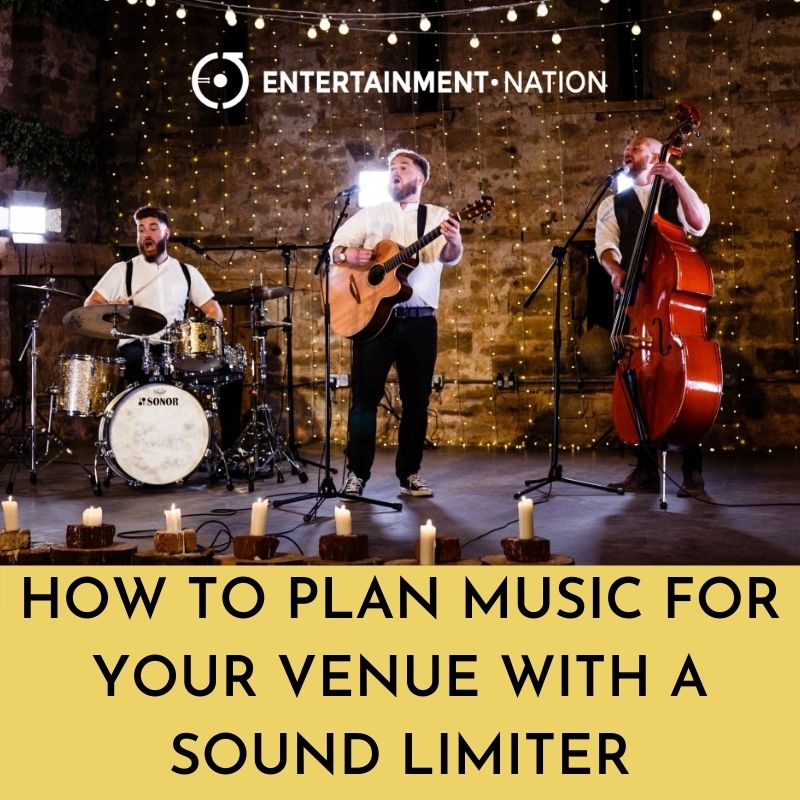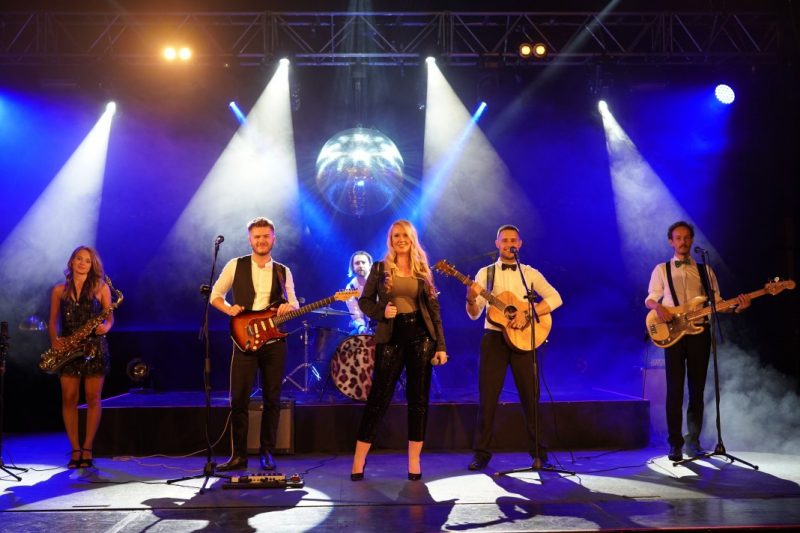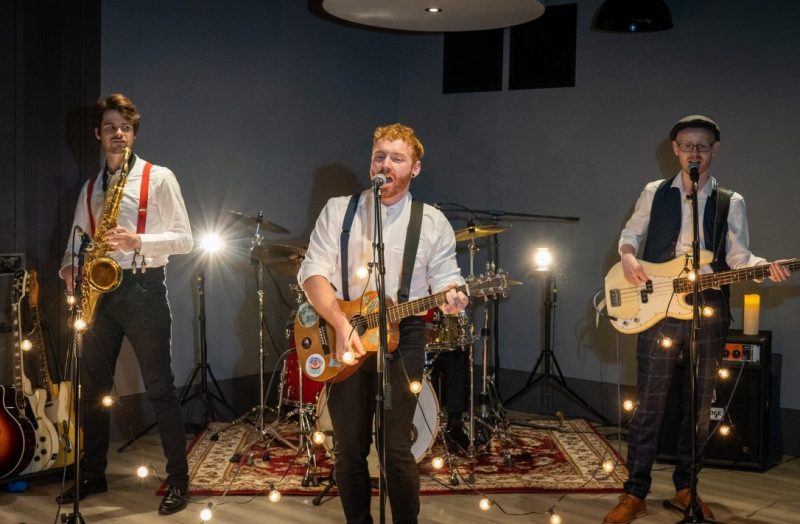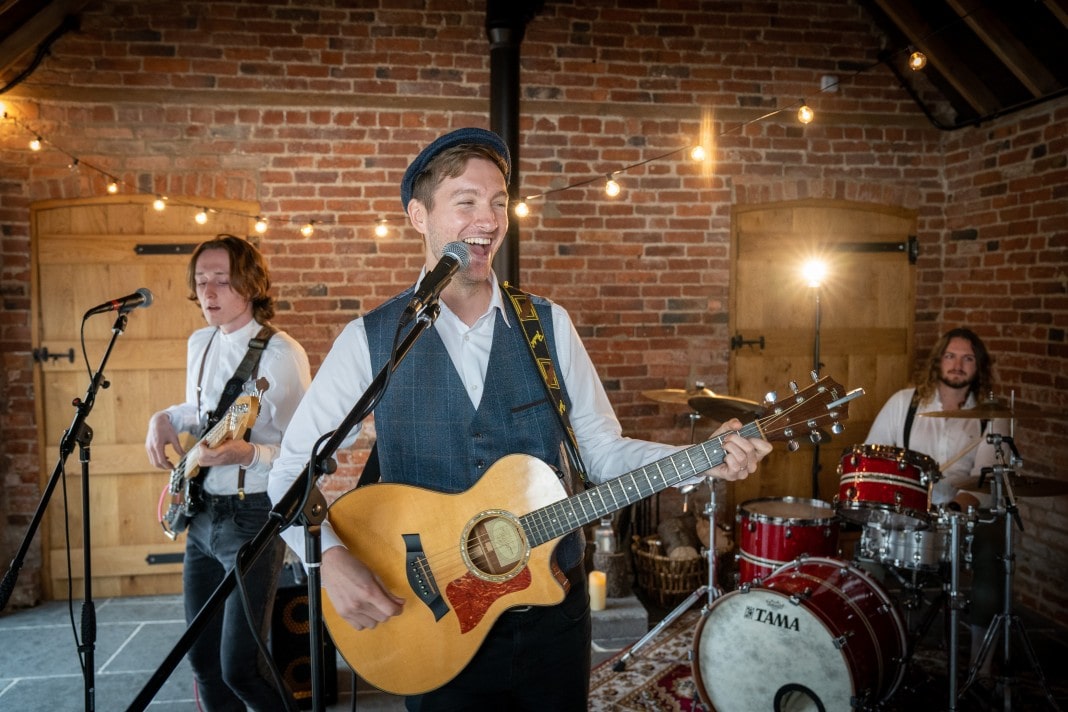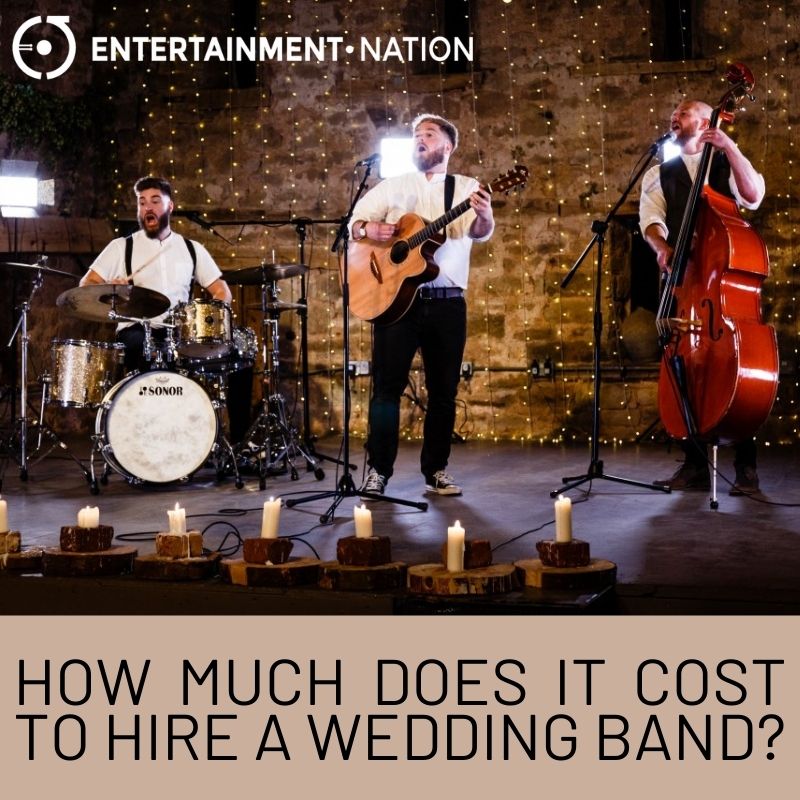Getting married or hosting an event at a venue with a sound limiter and need some advice about how this might affect your entertainment options? Read on!
With sound limiters becoming increasingly common (in fact most venues we provide bands for have them in place) it’s important to understand how they could potentially affect your evening and what to do to make sure your band can play within the restrictions!
Looking To Hire A Function Band?
What Is A Sound Limiter?
First up – what actually is a sound limiter? Basically it’s a small box that’s attached to a microphone. When the noise level in the room exceeds the decibel level that the box is set to, it will do one of two things:
- It will cut off all microphones, speakers and electric instruments – All that will be left is the poor drummer, passionately rocking out until they realise what’s happened. This is the most popular type of sound limiter but it does allow the band some control over their sound. It will use a traffic light system where a green light signals that the sound level is acceptable, an orange indicates it’s close to shut off and red light shows once it’s too loud and the system cuts off.
- It will instantly lower the level of sound output from the aforementioned devices. – Not quite as much of a shock to the system but almost as irritating. The band has no control over this and there’s often no traffic light system.

The electricity will usually come back on after a period of between 10 seconds and a minute (or sometimes until a member of staff has turned it back on), so it’s not the end of the world, but will happen again if the noise gets too…well, noisy.
To give you an idea of DB levels here’s a few examples of every day items / situations and their noise levels:
- 80DB: Loud traffic noise on motorway from 7.5m
- 85DB: Toilet flushing from 1m away
- 90DB: Average Petrol Lawn Mower
- 95DB: Loud Baby Crying
- 100DB: Average headphone level
- 105DB: F1 Racing car at 40m distance
- 110DB: Average level of Disco music at a club
- 115DB: Plane take off 10m away
I Don’t Want This To Happen At My Event!
Don’t worry – neither do we! So to ensure that this incredibly annoying little box doesn’t spoil your fun, follow the top tips we’ve compiled so that your band can play unhindered and you and your guests can have the best night of your life.
Our Top Tips For Working With Sound Limiters:
Find Out The Decibel Level On The Limiter At Your Venue
We’ve put this one first as it’s definitely the most important. If your venue’s sound limiter is set to 100 decibels or more, pretty much any band you hire will easily be able to play within the restrictions. If it’s set to 95 decibels you’ll probably be fine with most 4 or 5 piece bands (as long as they don’t have a brass section). If your sound limiter is set to 90 decibels you’ll need to be very careful which type of band you hire. (We’ll make some great suggestions later – but don’t worry, it’s more than possible!)
Electric Drum Kits Are Your Friend
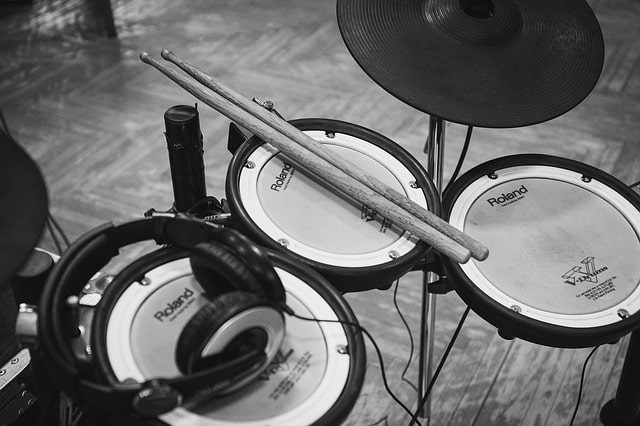
By far the loudest instrument in a band is the drum kit. Restrict the sound of the drummer and you’re onto a winner. Most bands will have an electric drum kit available for use in venues that demand low sound levels, ensuring that no matter how exuberant the drumming, it will never exceed a certain level. Alternatively, drummers can use hot rods or brush sticks to limit the level of sound they can produce. Most drummers are completely used to playing with everything we’ve listed and will be more than happy to use them.
Bassists Can Use A Direct Input Box
Low frequencies carry further and therefore often sound louder than high frequencies. As a result, it’s often the bassist in a band that accidentally sets off the sound limiter. To counteract those booming low notes, the bass guitar can be plugged into a Direct Input (DI) box which will magically convert the sound of the instrument to within an acceptable decibel range.
Tell Us About The Restrictions!
Make sure when you book that you have let our advisers know the decibel limit on your venue’s sound limiter so they can point you towards suitable bands. This should make sure that any band that you book will be able to play well within the restrictions and your night should go seamlessly!
Why Does My Venue Need A Sound Limiter?
Although it might seem like it, a sound limiter won’t have been installed to stop you having fun. Some venues will have had complaints about noise from neighbours, or for hotel venues, they need to consider the other guests they have staying with them. Get enough complaints and the government will step in and insist a sound limiter is put in place. Your venue probably won’t want it to be there any more than you do but unfortunately that’s the way things have to be to keep everyone happy and ensure that your venue doesn’t get shut down.
Can’t Wedding Bands Just Play Quietly?
The short answer to this is – yes they can but it doesn’t sound good. Obviously PA systems can be turned down and musicians can play and sing with less vigour than they normally would but this simply doesn’t sound as the music was intended to be played, resulting in a disappointing outcome for all. We would strongly recommend booking a band who can play within the restrictions easily to start with.
What Kind Of Bands Are Suitable With A 100DB Limiter?
Good news! If your limiter is set to 100DB or higher, you’ll be safe with pretty much any type of band regardless of size. However, even at this higher level we would advise against bands with trumpets or trombones.
What Kind Of Bands Are Suitable With A 95DB Limiter?
95 decibels is considered a suitable level for nearly all types of band and is definitely a volume level that shouldn’t cause you any problems. Any regular wedding band should easily be able to play within these restrictions, especially if they are an acoustic band.
What Kind Of Bands Are Suitable With A 90DB Limiter?
This is where things become a bit more tricky. 90DB is not a particularly live music-friendly level of noise so your options become a lot more limited but are definitely still manageable. We would recommend choosing an acoustic band and asking them to play with an electric drum kit (kind of an oxymoron but hey – it works!) With regards to size, a three-piece band is about as large as you can go so it’s a good job there’s such a wide selection of awesome trios, duos and solo artists out there to choose from! Small groups with a cajon rather than a traditional drum kit are great options here.
If you have your heart set on a full band you still have options. An acoustic roaming band doesn’t need any sort of amplification so it’s virtually impossible for them to play too loudly, even for a 90DB limiter. They will also often wander around between songs, giving your guests a more intimate and memorable experience so it’s win-win really!
Other Important Points To Note
- The microphone on the device doesn’t measure the sound of the band. It measures the whole sound in the room – including that of your guests. If you have a particularly large or boisterous crowd, it might we worth considering some of the noise-limiting strategies we’ve suggested, even with a 95DB limit!
- Sometimes using the venue’s PA system can be a good idea. The staff know how to work it and can switch everything back on much more quickly if it’s a system they’re used to.
- Bands are more than used to working with sound limiters. They are not a new thing and our bands have lots of experience of working within their restrictions – so don’t panic!
Can Someone Help Me Choose A Suitable Band?
Of course! Whatever sound limit is in place, our friendly team of advisers are available every day to help find you a band that won’t set off your sound limiter. You’ll be able to enjoy your party safe in the knowledge that your band will not only play at a suitable noise level, but will also be absolutely superb! Give us a bell on 0800 53 000 35 if you need any advice or let us know in the comments section on the enquiry form about the sound limit at your venue so we can advise you accordingly. Happy hunting!
